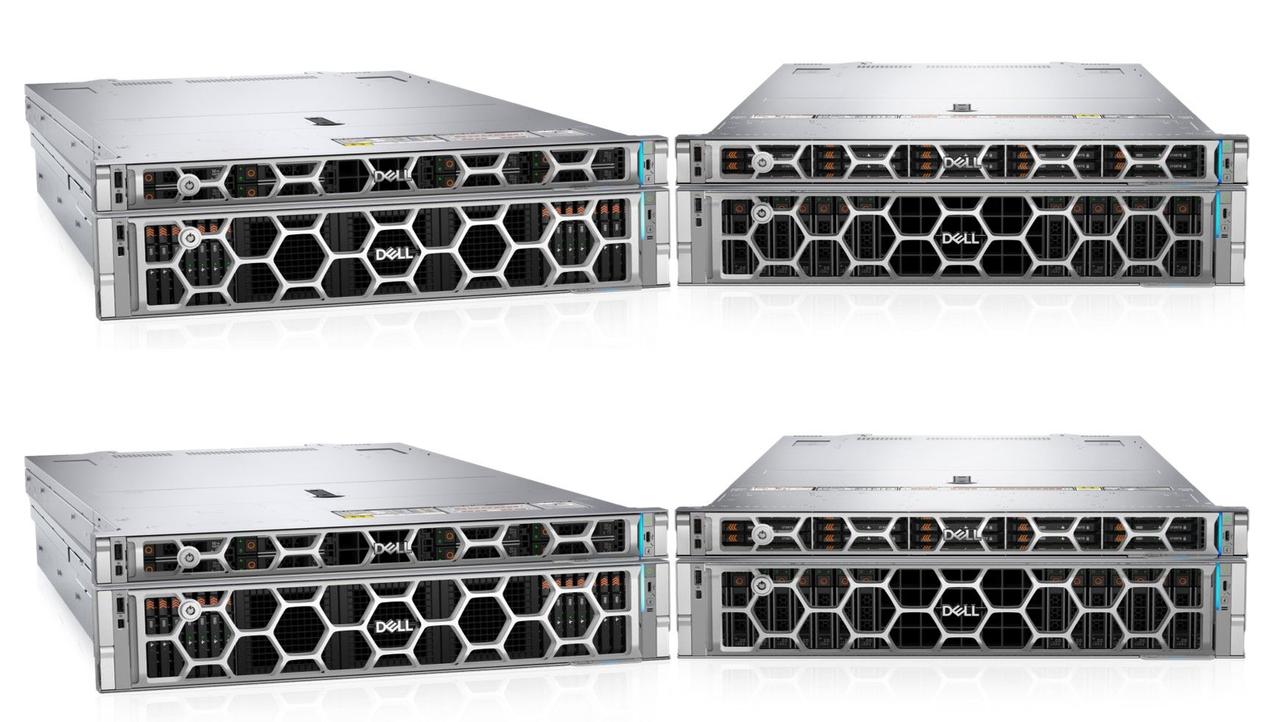Dell's Data Lakehouse: Accelerating Data-Driven Decision Making
2 Sources
2 Sources
[1]
Dell Data Lakehouse - Going Warp Speed
By Vrashank Jain It's been a busy spring and summer here at Dell. In March, on the first day of spring, we launched the Dell Data Lakehouse. This turnkey solution features a powerful query engine powered by Starburst, which provides high-performance, high-concurrency access to distributed data, regardless of the data source. The foundation of Dell Data Lakehouse is built on Dell S3-compatible storage providing a highly performant, high availability storage layer to store and query data in open formats like Iceberg. In today's fast-paced world, IT and data leaders face a tough challenge, accelerating analytics and AI while keeping costs in check. The tradeoff between speed and cost can prove expensive on either end. While adopting the data lakehouse offers performance advantages at lower costs, data engineering and IT teams still grapple with deciding which data to optimize and cache and which to leave as is in the data lake. Consider this feedback from data teams: "I'm the data engineer, and the analysts keep asking me to make copies and re-partition data (by date, by customer) when they have a new question so that response times are tolerable. It's a waste of my time and storage isn't free!""I'm the Data Leader for the data org, and I can't just keep throwing money at more and bigger clusters to meet my query response time SLAs! Data sizes are growing faster than my budget." This is why we're thrilled to introduce Warp Speed in the Dell Data Lakehouse for data on Dell's S3-compatible storage! What is Warp Speed? Warp Speed is a new feature in the Dell Data Lakehouse that autonomously learns query patterns and identifies frequently accessed data to create optimal indexes and caches while keeping infrequently accessed data where it is. What does it do? It delivers on the promise of accelerating query performance while keeping costs in the check. With Warp Speed, the same cluster can run data lake queries 3x to 5x faster without requiring any change in the query by the end user. It can also help reduce cluster sizes by up to 40%. More simply put, organizations can run more queries on large clusters or run the same volume of queries on smaller clusters. Accelerating data lakes: Autonomously index the data lake and on-demand accelerate exploratory datasets without involving data engineering.Building high-performance dashboards: Faster drill-down on TBs to PBs of data, without any change to the end user experience. The same queries now just run faster. How does it do that? Warp Speed employs a combination of acceleration technologies to achieve its remarkable performance: Autonomous Indexing: This feature creates appropriate index types (bitmap, dictionary, tree) tailored to each data block, accelerating operations such as joins, filters, and searches. Indexes are stored on an SSD in the compute nodes for rapid access.Smart Caching: Smart caching is a proprietary SSD columnar block caching that optimizes performance based on frequency of data usage. Caching eliminates unnecessary table scanning and provides more reuse of data between queries thus saving compute costs. How do I get it? Starting July 17th, Warp Speed will be available to all Dell Data Lakehouse customers and supported for those who are using Dell S3-compatible storage as their data lake. There is no change to the software license - this is now built-in! The configuration of the compute nodes will be modified to include SSDs that have been fully tested and benchmarked by Dell to support the Warp Speed index and cache. Accelerated Innovation in the AI Era Dell Data Lakehouse with Warp Speed sets a new benchmark in data lake analytics, empowering organizations to derive insights from their data more quickly and efficiently than ever before. Warp Speed unlocks the full potential of the Dell Data Lakehouse, paving the way for accelerated and budget-friendly innovation and growth in the AI era. To get a full, hands-on experience, visit the Dell Demo Center to interactively explore the Dell Data Lakehouse with labs hand-picked for you by Dell Technologies' experts. You can also contact your Dell account executive to explore the Dell Data Lakehouse for your data needs. And check out this blog to find out more about the latest release of the Dell Data Lakehouse! Note on Performance Benchmarking: These performance benchmarks are based on testing conducted by Dell in July 2024 using TPC-DS 1TB and 10TB datasets stored on Dell ECS S3-Compatible Object Storage against a variety of Dell Data Lakehouse cluster sizes (6 workers, 11 workers and 16 worker nodes) with each worker node configured with 64 vCPUs and 256GB RAM. The TPC-DS benchmark queries cover a wide range of query scenarios including reporting, ad hoc and interactive. Our results show that Warp Speed provides performance improvement generally across such scenarios, and between 3x to 5x for the top 20% of queries.Compute savings are estimated by comparing the total queries executed per 10 mins by a 6- worker node with Warp Speed to that of a 11-worker node without Warp Speed and extrapolating how many Warp Speed-enabled nodes could provide the same level of performance as an 11-worker node cluster without Warp Speed. We repeated this test for both 1TB and 10TB datasets. (The author is Vrashank Jain - Senior Product Manager, Dell Technologies, and the views expressed in this article are his own)
[2]
Dell Data Lakehouse - Going Warp Speed
Authored by Vrashank Jain, Senior Product Manager, Dell Technologies It's been a busy spring and summer here at Dell. In March, on the first day of spring, we launched the Dell Data Lakehouse. This turnkey solution features a powerful query engine powered by Starburst, which provides high-performance, high-concurrency access to distributed data, regardless of the data source. The foundation of Dell Data Lakehouse is built on Dell S3-compatible storage providing a highly performant, high availability storage layer to store and query data in open formats like Iceberg. In today's fast-paced world, IT and data leaders face a tough challenge, accelerating analytics and AI while keeping costs in check. The tradeoff between speed and cost can prove expensive on either end. While adopting the data lakehouse offers performance advantages at lower costs, data engineering and IT teams still grapple with deciding which data to optimize and cache and which to leave as is in the data lake.
Share
Share
Copy Link
Dell Technologies introduces its Data Lakehouse solution, aiming to revolutionize data management and analytics for enterprises. This innovative platform combines the flexibility of data lakes with the performance of data warehouses.

Dell's Data Lakehouse: A Game-Changer in Enterprise Data Management
In an era where data is the lifeblood of business, Dell Technologies has unveiled its groundbreaking Data Lakehouse solution, poised to transform how enterprises manage and leverage their data assets. This innovative platform combines the best features of data lakes and data warehouses, offering a unified approach to data management that promises to accelerate decision-making processes and drive business growth
1
.The Power of Unified Data Management
Dell's Data Lakehouse addresses a critical challenge faced by many organizations: the siloed nature of data across various systems. By providing a single, cohesive platform for storing and analyzing both structured and unstructured data, Dell enables businesses to break down these silos and gain a comprehensive view of their operations
2
.Accelerating Time-to-Insight
One of the key advantages of Dell's Data Lakehouse is its ability to significantly reduce the time required to extract valuable insights from data. Traditional data management systems often involve complex ETL (Extract, Transform, Load) processes that can be time-consuming and resource-intensive. Dell's solution streamlines this process, allowing organizations to move from raw data to actionable insights at unprecedented speeds
1
.Scalability and Flexibility
The Data Lakehouse is designed to scale seamlessly with an organization's growing data needs. It can handle massive volumes of data while maintaining performance and accessibility. This scalability is crucial for businesses dealing with the ever-increasing amounts of data generated in today's digital landscape
2
.Enhanced Security and Governance
In an age where data breaches and privacy concerns are paramount, Dell's Data Lakehouse incorporates robust security features and governance controls. This ensures that sensitive data is protected while still remaining accessible to authorized users, helping organizations maintain compliance with various data protection regulations
1
.Related Stories
Empowering Data-Driven Decision Making
By providing a unified platform for data storage, processing, and analysis, Dell's Data Lakehouse empowers organizations to make more informed, data-driven decisions. This capability is increasingly crucial in today's fast-paced business environment, where the ability to quickly analyze and act on data can provide a significant competitive advantage
2
.The Future of Enterprise Data Management
As organizations continue to grapple with the challenges of managing and deriving value from their data, solutions like Dell's Data Lakehouse are likely to play an increasingly important role. By offering a powerful, flexible, and scalable platform for data management and analytics, Dell is positioning itself at the forefront of the ongoing data revolution in enterprise IT
1
.References
Summarized by
Navi
[1]
Related Stories
Dell Technologies Unveils AI-Ready Infrastructure Innovations for Modern Data Centers
09 Apr 2025•Technology

Dell and HPE Expand AI Infrastructure with Nvidia-Powered Systems and Unstructured Data Solutions
12 Aug 2025•Technology

Dell Unveils AI Factory: Revolutionizing Data Centers with Advanced Cooling and High-Density Compute Solutions
16 Oct 2024•Technology

Recent Highlights
1
Pentagon threatens to cut Anthropic's $200M contract over AI safety restrictions in military ops
Policy and Regulation

2
ByteDance's Seedance 2.0 AI video generator triggers copyright infringement battle with Hollywood
Policy and Regulation

3
OpenAI closes in on $100 billion funding round with $850 billion valuation as spending plans shift
Business and Economy





